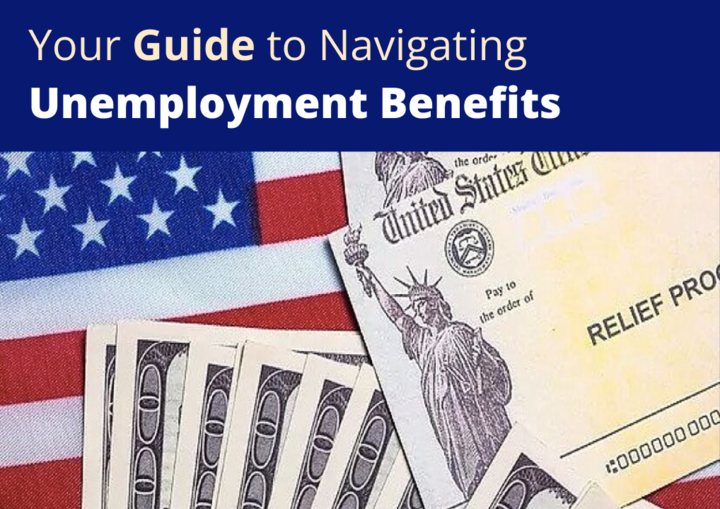As individuals approach retirement, one of the most significant financial considerations is the cost of healthcare. The reality is that healthcare expenses can be substantial, often exceeding initial expectations. According to a report from Fidelity Investments, a 65-year-old couple retiring in 2021 can expect to spend approximately $300,000 on healthcare throughout their retirement years.
This figure encompasses a range of expenses, including premiums, deductibles, copayments, and out-of-pocket costs for services not covered by Medicare. The unpredictability of health issues and the rising costs of medical services further complicate this landscape, making it essential for retirees to have a comprehensive understanding of potential healthcare costs. Healthcare costs in retirement are influenced by various factors, including age, health status, and lifestyle choices.
As individuals age, they are more likely to encounter chronic conditions that require ongoing medical attention, such as diabetes or heart disease. These conditions not only necessitate regular doctor visits but also often involve expensive medications and treatments. Additionally, the cost of healthcare can vary significantly based on geographic location; urban areas may have higher costs due to demand and availability of services.
Understanding these variables is crucial for retirees as they plan their finances and prepare for the realities of aging.
Key Takeaways
- Healthcare costs in retirement can be significant and should be carefully planned for.
- Creating a budget for healthcare expenses is essential for managing costs in retirement.
- Retirees should explore healthcare options such as Medicare, Medicaid, and private insurance plans.
- Utilizing health savings accounts and retirement funds can help cover healthcare expenses in retirement.
- Considering long-term care insurance is important for protecting against potential long-term care costs in retirement.
Creating a Budget for Healthcare Expenses
Creating a budget specifically for healthcare expenses is a vital step in ensuring financial stability during retirement. This budget should account for both fixed and variable costs associated with healthcare. Fixed costs may include monthly premiums for Medicare or private insurance plans, while variable costs can encompass out-of-pocket expenses for medications, specialist visits, and unexpected medical emergencies.
A well-structured budget allows retirees to allocate funds appropriately and avoid financial strain when faced with unforeseen health issues.
To create an effective healthcare budget, retirees should begin by estimating their annual healthcare expenses based on their current health status and anticipated needs.
This estimation can be informed by reviewing past medical bills and considering any ongoing treatments or medications.
Additionally, it is wise to factor in potential increases in healthcare costs over time due to inflation and advancements in medical technology. By establishing a realistic budget that accommodates both expected and unexpected healthcare expenses, retirees can better navigate the complexities of their financial landscape.
Exploring Healthcare Options for Retirees
Retirees have a variety of healthcare options available to them, each with its own set of benefits and limitations. The primary option for most retirees is Medicare, a federal health insurance program that provides coverage for individuals aged 65 and older. Medicare consists of different parts: Part A covers hospital insurance, Part B covers outpatient services, and Part D provides prescription drug coverage.
Understanding the nuances of these parts is essential for retirees to maximize their benefits and minimize out-of-pocket costs. In addition to Medicare, retirees may also consider supplemental insurance plans known as Medigap policies. These plans are designed to fill the gaps in coverage left by Medicare, such as copayments, coinsurance, and deductibles.
Medigap policies can significantly reduce out-of-pocket expenses for retirees who frequently require medical care. Furthermore, some retirees may opt for Medicare Advantage plans (Part C), which offer an alternative way to receive Medicare benefits through private insurance companies. These plans often include additional services like vision and dental coverage, making them an attractive option for those seeking comprehensive care.
Utilizing Health Savings Accounts and Retirement Funds
Health Savings Accounts (HSAs) are a powerful tool for retirees looking to manage their healthcare costs effectively. HSAs allow individuals to save money tax-free for qualified medical expenses, providing a financial cushion that can be particularly beneficial during retirement. Contributions to HSAs are tax-deductible, and the funds can grow tax-free over time.
This triple tax advantage makes HSAs an appealing option for those who anticipate significant healthcare expenses in retirement. In addition to HSAs, retirees should also consider how their retirement funds can be utilized to cover healthcare costs. Traditional retirement accounts like 401(k)s and IRAs can be tapped into for medical expenses, although withdrawals may be subject to taxes.
It is crucial for retirees to strategize their withdrawals carefully to minimize tax implications while ensuring they have sufficient funds available for healthcare needs. By combining HSAs with retirement accounts, retirees can create a robust financial strategy that addresses both immediate and long-term healthcare expenses.
Considering Long-Term Care Insurance
Long-term care insurance is another critical component of healthcare planning for retirees. As individuals age, the likelihood of requiring assistance with daily activities increases significantly. Long-term care insurance provides coverage for services such as nursing home care, assisted living facilities, or in-home care, which are not typically covered by Medicare.
The cost of long-term care can be exorbitant; according to Genworth’s Cost of Care Survey, the average annual cost of a private room in a nursing home exceeds $100,000 in many areas. Investing in long-term care insurance can alleviate the financial burden associated with these services. However, it is essential for retirees to carefully evaluate their options before purchasing a policy.
Factors such as premium costs, benefit limits, waiting periods, and inflation protection should all be considered when selecting a long-term care insurance plan. Additionally, purchasing a policy at a younger age can result in lower premiums and better coverage options, making it a proactive step in retirement planning.
Factoring in Medicare and Medigap Plans
Navigating the complexities of Medicare and Medigap plans is crucial for retirees seeking comprehensive healthcare coverage. Medicare provides essential health services but does not cover all medical expenses; this is where Medigap plans come into play. These supplemental policies help cover costs that Medicare does not fully address, such as copayments for hospital stays or coinsurance for outpatient services.
When considering Medigap plans, retirees should be aware that there are several standardized options available, each offering different levels of coverage. For instance, Plan G is one of the most popular Medigap plans because it covers nearly all out-of-pocket costs except for the Part B deductible. Understanding the differences between these plans allows retirees to select the one that best aligns with their healthcare needs and financial situation.
Additionally, it is important to enroll in Medigap plans during the open enrollment period to avoid potential underwriting issues that could affect eligibility or premium rates.
Seeking Financial Advice for Healthcare Planning
Given the complexities surrounding healthcare costs in retirement, seeking professional financial advice can be invaluable. Financial advisors who specialize in retirement planning can provide insights into managing healthcare expenses effectively while ensuring that overall financial goals are met. They can help retirees assess their current financial situation, project future healthcare costs based on individual health profiles, and develop strategies to mitigate risks associated with unexpected medical expenses.
Moreover, financial advisors can assist retirees in understanding the intricacies of Medicare and Medigap plans, helping them make informed decisions about their coverage options. They can also provide guidance on how to best utilize HSAs and retirement funds to cover healthcare costs while minimizing tax implications. By collaborating with a knowledgeable advisor, retirees can create a comprehensive financial plan that addresses both their immediate healthcare needs and long-term financial security.
Revisiting and Adjusting Your Healthcare Plan Regularly
Healthcare needs are not static; they evolve over time due to changes in health status, advancements in medical technology, and shifts in personal circumstances. Therefore, it is essential for retirees to revisit and adjust their healthcare plans regularly. This proactive approach ensures that they remain aligned with their current needs while adapting to any changes that may arise.
Regularly reviewing healthcare plans allows retirees to assess whether their current coverage adequately meets their needs or if adjustments are necessary. For instance, if a retiree develops a chronic condition requiring specialized care or new medications, they may need to explore additional coverage options or adjust their budget accordingly. Additionally, as new Medicare plans become available or existing ones change their benefits or premiums, staying informed enables retirees to make timely decisions that optimize their healthcare coverage while managing costs effectively.
In conclusion, navigating the landscape of healthcare costs in retirement requires careful planning and ongoing management. By understanding potential expenses, creating a detailed budget, exploring various healthcare options, utilizing savings accounts effectively, considering long-term care insurance, factoring in Medicare and Medigap plans, seeking professional advice, and regularly revisiting their plans, retirees can position themselves for a financially secure retirement while ensuring access to necessary medical care throughout their later years.
FAQs
What are healthcare costs in retirement?
Healthcare costs in retirement refer to the expenses associated with medical care and health-related services that individuals incur after they have stopped working.
Why is it important to plan for healthcare costs in retirement?
It is important to plan for healthcare costs in retirement because medical expenses tend to increase as individuals age, and they may no longer have employer-sponsored health insurance. Failing to plan for these costs can lead to financial strain in retirement.
What are some common healthcare expenses in retirement?
Common healthcare expenses in retirement include premiums for Medicare, out-of-pocket costs for medical services and prescription drugs, long-term care costs, and expenses for dental and vision care.
How can individuals plan for healthcare costs in retirement?
Individuals can plan for healthcare costs in retirement by estimating their future medical expenses, considering purchasing supplemental health insurance, contributing to a health savings account (HSA), and incorporating healthcare costs into their overall retirement savings plan.
What are some strategies for managing healthcare costs in retirement?
Strategies for managing healthcare costs in retirement include staying healthy to reduce medical expenses, comparing Medicare plans to find the best coverage for individual needs, and exploring options for long-term care insurance. Additionally, individuals can consider relocating to areas with lower healthcare costs.







